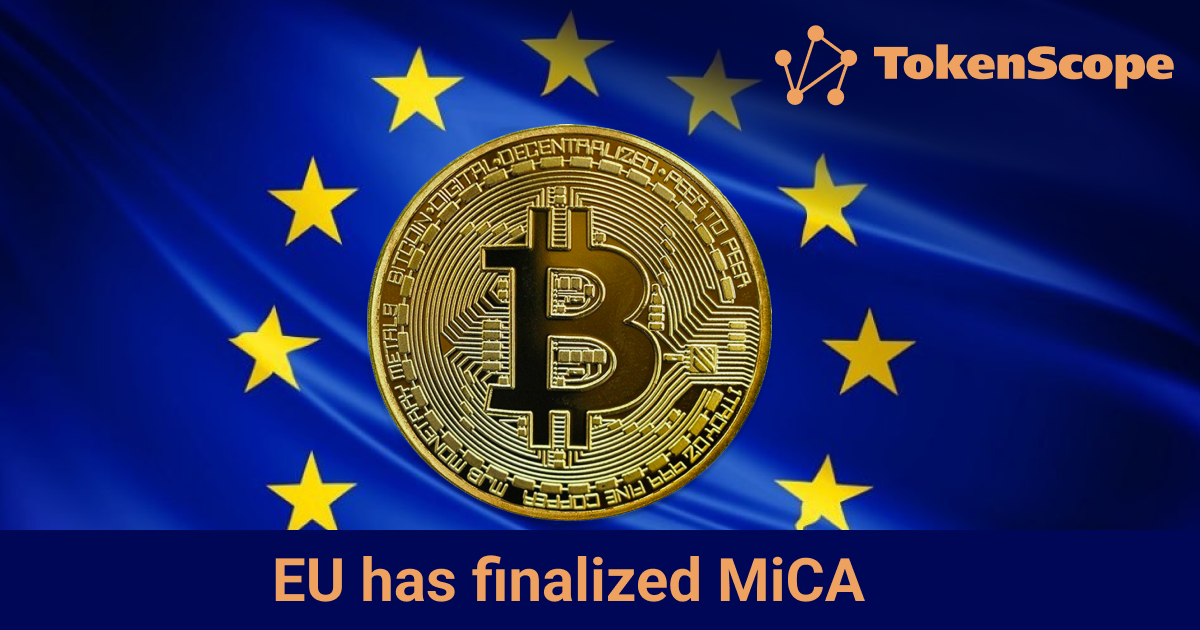Crypto regulation in the world: weekly digest #13

The USA
This Friday the White House has presented the new concept for supervision of cryptocurrency industry. This proposal follows US President Joe Biden’s executive order directing federal agencies to coordinate efforts to oversee the industry. The concept includes many initiatives, including amendments to the Bank Secrecy Act, which will tighten law enforcement practices in relation to virtual assets service providers. US Department of the Treasury was instructed to complete the assessment of the risks associated with the DeFi sectors by July 2023. The SEC and CFTC also were recommended to pay increased attention to the cryptocurrency sector.
We already mentioned that the US stablecoin Bill proposal is still under consideration. This week it was revealed that The House of Representatives was planning to take over the supervision of stablecoins into the hands of four US regulators at once: OOC (Office of the Comptroller of the Currency), FDIC (Federal Deposit Insurance Corporation), FED (Federal Reserve Board) and SEC (Securities and Exchange Comission).
The most important point of the forthcoming law is a two-year moratorium on the issuance of tokens, whose value is tied to another cryptocurrency. First of all, this concerns so-called algorithmic stablecoins, whose peg to the dollar is guaranteed by a collateral mechanism from various digital currencies or a utility token of the ecosystem. A vivid example of the latter scheme is the UST token, issued under the security of LUNA, cryptocurrency of Terra project. In early May, LUNA fell by 45% in a day, and in order to ensure the peg, it was necessary to increase its emissions, which caused an even greater depreciation of the cryptocurrency. As a result, UST has become worth less than a cent. That is why US Senators suggest that the US Treasury, in cooperation with the FED and the FDIC study this issue in order to develop regulating algorithms for such a tokens.
The UK
On Thursday the UK government stated that lawmakers in Parliament has introduced a bill on economic crime and corporate transparency as part of the proposals to fight with money laundering in the country.
Cryptocurrencies are also a subject to this law. This bill makes it easier for law enforcement agencies to seize, freeze and return crypto assets when they are used for criminal activities. In particular, this concerns money laundering, drug trafficking and cybercrime.
The bill proposal was developed by several governmental authorities, first of all the Home Office, the Department for Business, Energy and Industrial Strategy, HM Treasury and the Serious Fraud Office. The bill has already passed its first reading in the House of Commons.
Also this month, the HM Treasury updated guidance on how crypto exchanges and wallet providers report potential sanctions violations.
The EU
It seems that The European Union’s Markets in Crypto Assets (MiCA) bill has been finalized. Once the MiCA is adopted, crypto asset issuers will be required to publish official documents containing technical roadmaps, and crypto assets service providers will be required to be registered by the regulating authorities. Issuers of stablecoins will be obliged to ensure the sufficiency of capital backing.
The Bill was also amended with the NFT regulation. The terminology and language of the bill is that the EU correlates large NFT collections such as Bored Ape Yacht Club and Cryptopunks with blue chips. The Bill states that the issuance of crypto assets in the form of non-fungible tokens in a large series or collection should be considered as an indicator of their fungibility. According to the European regulators, the sole fact of assigning a unique identifier to a crypto asset is not enough to classify it as unique or non-fungible. When someone sells a collection of 10,000 NFTs, these NFTs can be assessed as shares in that project. In other words, each NFT is functionally just a fraction of the cost of the entire project. Therefore, the NFT holder does not own a unique piece of art, but instead simply has a stake in the collective value of the brand and collection owner.
The new draft also features changes concerning algorithmic stablecoins. MiCA, once passed into law, will require issuers of crypto assets to publish white papers containing technical roadmaps, for platforms to register with the authorities, require stablecoin issuers to hold capital and be prudently managed.
The Republic of Korea
South Korean lawmakers are joining US and Europe’s lawmakers in developing legal framework for cryptocurrencies and other digital assets. The law is not unexpected, as the South Korean president drew attention to the need for new laws during his presidential campaign in January. The Financial Services Commission (FSC), the country's financial regulator, also supports the need for rules to manage risk in digital asset trading.
We continue to highlight the news of the world of crypto regulation worldwide. Please stay with us!




